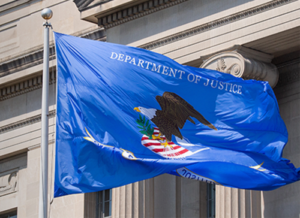
In a high-stakes legal battle, the Consumer Financial Protection Bureau (CFPB) has filed a lawsuit against Walmart Inc. and its fintech partner, Branch Messenger Inc., alleging they illegally opened bank accounts for over a million delivery drivers without their consent.
Key Allegations
The CFPB claims Walmart’s Spark Driver program forced delivery drivers to accept costly deposit accounts with Branch Messenger under the threat of termination. These accounts were allegedly opened using drivers’ sensitive personal information, such as Social Security numbers, without proper consent.
Drivers faced fees exceeding $10 million to instantly transfer their earnings to a personal account, despite being misled with promises of “instant access” to their pay. In reality, many drivers encountered delays in accessing their funds, according to the lawsuit.
The CFPB’s Demands
The CFPB is seeking to halt these practices, secure compensation for affected drivers, and impose civil penalties on Walmart and Branch. CFPB Director Rohit Chopra criticized the companies for their conduct, stating, “Walmart made false promises, illegally opened accounts, and took advantage of more than a million delivery drivers.”
Walmart and Branch’s Response
While Walmart has not commented on the allegations, Branch has issued a strong rebuttal, calling the lawsuit a misrepresentation of the facts and accusing the CFPB of rushing to litigation without proper engagement.
“Branch stands behind its model and services and will defend this action vigorously,” the company said in a statement, arguing that their platform provides valuable services to Walmart and its drivers.
Broader Implications
The lawsuit comes as the CFPB steps up its enforcement actions in the final months of the Biden administration. This case follows recent lawsuits against major banks over Zelle fraud and the introduction of new overdraft fee caps.
Walmart’s Spark delivery program, launched in 2018, relies on independent contractors to deliver online orders. With e-commerce sales rising over 20% in the latest quarter, the lawsuit has sparked concerns over Walmart’s treatment of its gig workers. The controversy has also impacted Walmart’s stock, which fell 3.2% following the announcement.
What’s Next?
The CFPB aims to secure justice for affected drivers while shining a spotlight on the practices of fintech-bank partnerships. As the case unfolds, it will test the boundaries of how gig economy workers are treated and highlight the regulatory scrutiny faced by fintech platforms.
Stay tuned for updates as this case develops, shedding light on the evolving relationship between fintech, major corporations, and labor practices.



